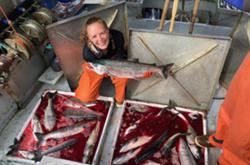- The Imposters
- Penguin Random House (2023)
On the face of it, celebrated author Tom Rachman’s latest book The Imposters is about a woman named Dora Frenhofer. We meet Dora in the latter days of her career as a novelist, while she is in the process of drafting what will, in all likelihood, be her final work. But that’s only the most cursory synopsis of a sprawling and expansive collection of interrelated tales that encompass not only the act and art of writing, but the cost of creation itself.
The Imposters is a story about stories — about the lies, big and small, that we tell ourselves and each other in order to survive.
Rachman has a masterful way of conjuring the idiosyncrasies of humans in all their complexity. Now based in London, U.K., the author was raised in Vancouver before he went on to study film at the University of Toronto, followed by graduate studies in journalism at Columbia University in New York City.
After starting his career as an international correspondent for the Associated Press based in Rome, Italy, Rachman published his first novel, The Imperfectionists in 2010. The book followed the staff of an international newspaper as they moved through their daily grind of getting the story and getting it out.
Long-listed for the 2010 Scotiabank Giller Prize, The Imperfectionists was named a New York Times book of the year and won the Canadian Authors Award for Fiction. The success and critical acclaim vaulted Rachman into the upper echelons of writers alongside the likes of Ruth Ozeki and Richard Powers. His subsequent novels explored the thornier stuff of human experience whether in the form of a father-son relationship in The Italian Teacher or a book shop proprietor in The Rise & Fall of Great Powers.
On the phone last week while in the midst of the full fury of book promotion, Rachman explains that he still thinks of Vancouver as his hometown, even though he hasn’t lived here in 30 years. The changes that have taken place over the ensuing decades takes up a good portion of our conversation.
There’s a lot to explain. Alongside the broader shifts in the city, the decline of media and cultural journalism, even reading in general, has marked a significant shift in the local landscape. In our conversation, we remembered how at one point, the Vancouver Sun had a theatre critic and a music critic. For every discipline, there was a dedicated and informed writer. The recent news that the paper had shuttered its newsroom and sent its remaining staff to work at home came as something of a surprise to Rachman.
The focus of his new book is timely in consideration of the ongoing frictions and collapses in the media industry, both local and abroad. The Imposters offers up a reconsideration of the written word, and what the times and tides of our current moment have wrought upon the novel.
Things do get a little meta: a writer (Rachman) writes a novel (The Imposters) about a writer (Dora Frenhofer), who spends the novel writing. Bear with me. There is a lot to contend with in The Imposters, and much of it isn’t easy. The one factor that unites almost everyone in the book is the tangled, occasionally tortuous relationship with the written word. Why anyone wants to write is something of a conundrum. But the notion that the act of authorship will somehow alter one’s place in the world persists.
Not all of The Imposters’ characters are a pleasure to spend time with. In fact, many are downright maddening. Others are headed towards the piteous side of things, whether it’s Danny, a Brooklyn writer who manages to make every faux pas possible while attending a literary festival in Australia, or a young man named Amir who returns to Syria for his father’s funeral and is imprisoned as a political prisoner.
In the centre of these perambulatory journeys is Dora, who embodies almost all of the most confounding qualities of a creative temperament ranging from imperious and rude to heartbreaking. If ever there was a poster child for Polish laureate Czeslaw Milosz’s famous quote, “When a writer is born into a family, the family is finished,” it is Dora.
Anyone who has lived with a writer (parent, partner, child) knows the curious experience of seeing yourself flattened into a fictional recreation. It’s not always flattering. So here it is as well, as Dora uses even the briefest encounter with taxi drivers, delivery people, even her own children, to spin entire imagined histories for her work. The fact that she is a minor talent at best, moving from one small publishing house to another, taking what she can get, living an insular life in a mouldering pile of a house in London, doesn’t make things any easier. Far worse, in fact.
If art is a means to rationalize or justify bad behaviour in the name of creativity, what if you’re not a very good artist?
In one sense, the book is a long series of sliding-door scenarios. We see different potential paths taken or not, depending on the decisions made at a particular point in time. The ability of a novelist to spin a lifetime of trajectories from these initial points of intersection is the meat of Rachman’s book, but the story goes deep into the alternating comedy and tragedy that is humanity, in all its solipsistic, unidirectional focus.
It starts to get a little close to home in a few instances, especially in the chapter dedicated to Danny, the struggling Brooklyn writer. After being heralded as a new voice in fiction for his first book, his subsequent efforts yield only a series of diminishing returns. Years spent working on his latest book are looking like they might be a wasted effort until an invitation to a literary festival heralds new possibilities.
Rachman’s own experiences filter in, although he is not nearly the same sad sack as Danny, who manages to insult his fellow conference attendees, Pakistani activist Malala Yousafzai, and even disabled people in a series of humiliating blunders. The high, lows and in-betweens of a novelist’s experience are similarly detailed in a recent essay Rachman wrote for the Globe and Mail. In summoning these experiences, Rachman does what his central character (Dora) is doing, namely taking things from lived experience and spinning the raw straw into the stuff of story.
In spite of their bad decisions, occasional carelessness and self-interest, each of the characters is not without sympathy, and more importantly, humour. Here is where the author’s hand is most clear, offering levity, wit and empathy that tempers even the most questionable acts. In the case of Dora, there is an underlying motivation that becomes increasingly apparent as the narrative progresses.
Crafting a book is one thing; getting anyone to pay attention is quite another. In this aspect, the intersection between reality and fiction again collide. In writing about writers and their work, Rachman himself is making the rounds of the marketing circuit to promote this very book.
Despite having been through the busy blur of publication day a few times, Rachman says that it remains a deeply odd thing. The insularity, solitude, the years of work poured into a creative act of writing stands in stark contrast to the blinding light of marketing, media and vying for attention. As he writes in his Globe and Mail essay, “Promoting a book can derange you. After years of quiet toil and noisy typing, you clutch a published book, and step forth to meet the public, eight billion humans who, mystifyingly, seem not to know that your new novel just came out.”
The different skill sets required in writing a novel and then promoting said novel are considerable and often downright contradictory. But one of the trickier aspects of being a novelist is success. If readers react well to an initial work, the pressure to repeat the format is formidable. But artists don’t want to repeat themselves. Even if novels don’t quite occupy the same cultural turf that they once did, much of The Imposters plays with the ongoing devaluation of the written word.
Reading about Dora’s behaviour reminded me of William Deresiewicz’s essay that came out a few months back and caused some consternation.
Great artists aren’t necessarily great humans, and to demand that you can only like an artist’s work if they’re a good person is, as Rachman says, “immature.” The Imposters ponders this issue in a more oblique fashion, presenting humanity with its warts, more warts and all for readerly inspection.
The book uses the periods of pandemic slowdown as a means to examine how humans can, if only for a moment, appear to shift, become something better than their cranky, petulant, self-absorbed selves, before the invariable sliding backwards to more accustomed modes.
Barrelling through The Imposters in one sitting, it took me a while to figure out that everything was not what it first appeared to be with all of these disparate characters. Nor is everything with Dora herself on the up and up. The narrative does not stand in judgement of human frailty. It allows readers to simply see the rationalization, the prevarication, the deals that we make with ourselves and others in order to maintain a sense of self — and arguably purpose, such as it is. ![]()
Read more: Books
















Tyee Commenting Guidelines
Comments that violate guidelines risk being deleted, and violations may result in a temporary or permanent user ban. Maintain the spirit of good conversation to stay in the discussion and be patient with moderators. Comments are reviewed regularly but not in real time.
Do:
Do not: